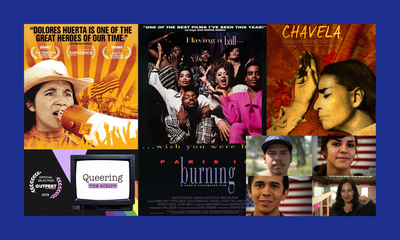Contributing Writer - Lana Kruczynski
The power of a single line:
"In Latin culture, we forgive our men way too many times.”
In less than ten seconds on The Real Housewives of Miami (RHOM), Adriana de Moura said what many of us have felt but rarely named out loud. It was June 11, 2025, in the season 7 premiere (“MIA Back in Action”, 29:14–29:20). A fleeting confessional, but it landed with weight.
And Adriana wasn’t talking about herself. She was pointing to her castmate Alexia Nepola, who had just shared one of the most painful contradictions of love.
Alexia Nepola’s Story: Love, Abandonment, and The Messy Middle
Alexia Nepola, a Cubana, longtime housewife on The Real Housewives of Miami (RHOM) and business owner, had opened up moments earlier about her marriage to her husband Todd. After what she described as such a beautiful, special day together, he suddenly packed his bags and left the next morning. Despite the abandonment, she admitted she was still romantically involved with him. That raw confession framed Adriana’s line. Forgiveness here wasn’t theoretical, it was a cultural mirror, reflecting the way many Latina women navigate marianismo and emotional labor.
Who Is Adriana de Moura and Why She Matters?
Adriana de Moura isn’t just another Bravo network RHOM star. A Brazilian musical artist, expert art dealer and long-time fixture of RHOM, she has built a reputation for being candid, emotional, and unapologetically herself. Her willingness to speak uncomfortable truths sets her apart in a franchise where performance often overshadows vulnerability. On this season of RHOM, Adriana de Moura has also faced ageism on RHOM, with castmates and viewers at times dismissing her opinions or storylines because of her age. Yet, instead of shrinking back, she continues to own her presence on screen proving that Latina women in midlife still have powerful voices and stories to tell.
The Cultural Script — Marianismo And Forgiveness In The Latino Community
Adriana de Moura's line exposes an old, familiar pattern. In Latin cultures, women are often expected to be resilient, endlessly forgiving, and the glue that keeps families together, even when it comes at a personal cost. This is tied to marianismo, a cultural ideal rooted in the image of the Virgin Mary, where women are expected to be self-sacrificing and morally superior, holding everything together with patience and grace. But behind that expectation lies exhaustion. Forgiveness, when demanded rather than chosen, becomes a burden, one that drains women emotionally and physically.
When Reality TV Turns Into Cultural Commentary
That’s the unexpected power of reality TV. A throwaway confessional becomes cultural commentary. Adriana’s words resonate because they break through the noise of opulence and drama. Bravo confessionals, in particular, often blur the line between entertainment and truth-telling, offering a space where women voice what’s simmering beneath the surface. When Adriana says Latinas forgive too much, she isn’t just talking about herself. She’s naming a cycle many women across generations know well.
Generational Shifts: Boomers, Millennials and Gen Z Latinas
Adriana’s words don’t belong to one age group, they ripple across generations of Latinas.
For older women, the line echoes decades of lived experience, often marked by endurance and silence.
For millennials, it feels both familiar and aspirational: a reminder of the scripts we inherited but also a push to break them.
For Gen Z Latinas, it may sound almost like a manifesto: a call to set boundaries, demand respect, and redefine what forgiveness in love should mean.
What makes Adriana’s moment so powerful is precisely this range — how a few seconds of reality TV can spark conversations at kitchen tables, in group chats, and across generations of women seeking change.
When Forgiveness Harms — What Research Shows
Research in psychology shows that while forgiveness can be healing, when it becomes chronic or coerced, it has the opposite effect: leading to resentment, stress, and even health issues. Boundaries aren’t the opposite of forgiveness, they’re what make forgiveness meaningful. A boundary says: I love myself enough to decide what I will and will not accept. And that decision protects mental health as much as it nurtures relationships.
From TV Confessional to Kitchen-Table Conversation (A Call to Action)
Adriana de Moura may have said it on RHOM, in the middle of a show famous for its sparkle and shade. But her words cut deeper. In naming the cycle of forgiving men, and in echoing Alexia Nepola’s painful confession, she offered us a mirror: one that reflects both the weight of cultural expectation and the possibility of breaking free. Because when we speak the truth, we create space for change. And maybe, just maybe, a ten-second confession can help Latinas everywhere imagine love not as endless forgiveness, but as partnership, one built on respect, reciprocity, and real choice.






